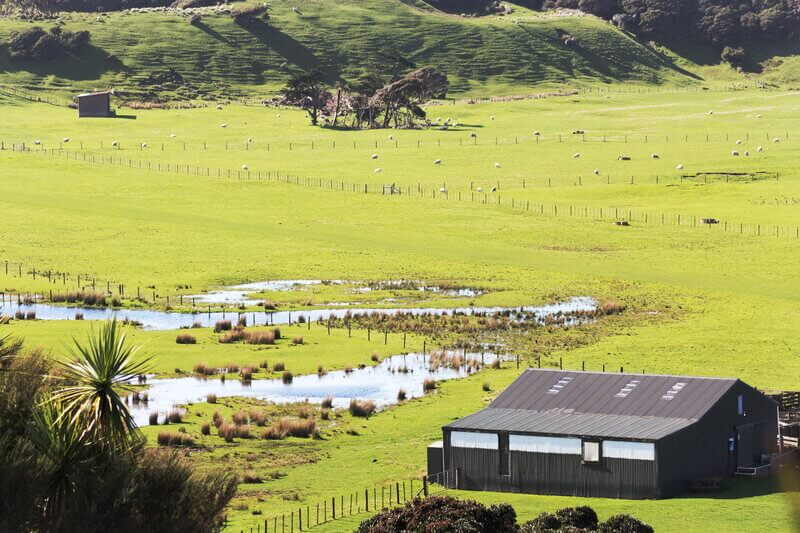Farming is an essential part of life in New Zealand, the backbone of our economy, providing us with the food we need to survive and valuable export revenue. However, farming faces numerous challenges, including extreme weather events, economic uncertainty, increasing regulation, environmental concerns, and changing market demands.
The concept of resilience is not new, and farmers are certainly no strangers to tough times. But to survive and thrive in a changing world, New Zealand farmers must take a new look at what resilience means to them and their farming operations.
What is resilience?
Resilience is the capacity of a system to absorb disturbance and reorganise while undergoing change to retain essentially the same functionality as before the change. In New Zealand, as demonstrated during the recent weather events, we tend to focus on the resilience of infrastructure such as roads, bridges, and water and power systems with the occasional reference to the resilience of the people affected and how they have come together.
While initially useful, these references can fall short of the kind of longer-term resilience we need to adequately recover from shocks such as droughts, floods, pests, diseases, and economic downturns.
While technology-based solutions are often claimed to increase resilience, the opposite can be true in the absence of the vital infrastructure and power systems required to support them. A resilient farm, then, can maintain productivity and profitability while also protecting the environment, ensuring the welfare of its owners and workers, and contributing to the well-being of the community in the face of any disruptive event.
While every farming context is different, there are several general strategies that farmers can use to develop resilience:
Diversification
Diversification involves multiple growing crops or raising multiple livestock species rather than relying on a single crop or animal. Most farms in New Zealand are monocultures, focusing solely on producing a single product, e.g. milk, meat, pine, kiwifruit etc., to create ‘economies of scale’ that should generate greater profits. This focus can lead to greater risk of, and vulnerability to, crop failure, livestock disease, fluctuating commodity prices, increasing input costs, etc. etc. While diversification is criticised by some as undermining profit, from a resilience perspective, it creates more opportunities for income generation; for example, a farmer might grow vegetables, fruits, and grains, or raise chickens, pigs, and cattle.
Management style
Management practices such as no-till farming, holistic grazing, cover cropping, planting of appropriate trees, and integrated pest management can help to improve soil health, reduce erosion, conserve water, and reduce the need for chemical inputs. This creates a more robust ecosystem function that better mimics nature and can withstand shocks and disturbances.
Networks and Collaboration
Collaboration with other farmers, researchers, and community organisations can help to build resilience by sharing knowledge, resources, and expertise. Farmers might share equipment, labour, experiences, or work produced by researchers to develop new practices and thinking within their own farming context. Collaboration, being open to new ideas, and accepting feedback from changing conditions may lead to increased adaptability, enabling farmers to respond better to disruption or opportunity. In times of crisis, networks provide untold support (physical and emotional) to affected farmers, especially if the effects of the crisis are longer-term.
Financial Management
Prudent financial planning and management create better resilience. Moving to a financial plan with a bit of ‘give’ allows a farmer more ‘wiggle-room’ when a crisis happens. Not only does this allow more redundancy in the farming system, but it also allows the resources to be available to pursue an opportunity or to try new ideas without risking the farm. This is an important aspect of resilience, as it can be the difference between make or break for some farmers in financial shocks such as crop failures, market downturns, or adverse weather events.

The critical role resilience will play in successful farming
Resilience will become an increasingly important concept as farmers seek to plan their pathway forward over the coming years. The scope of resilience will expand to not just encompass the physical aspects of farming (plant, infrastructure, etc.) but the whole farming environment including soils, waterways, biodiversity, animals, and ecosystems, and the more intangible things like finances, health, and emotional well-being; all of which have very tangible consequences.
The ability to incorporate resilience in the farming context will become an essential characteristic of farmers whom both survive and thrive while meeting the challenges of a rapidly changing world. By doing so, they can not only secure their own livelihoods but also contribute to the health and well-being of their rural communities and the country as a whole.
If you want to find out how you can farm in a more resilient way, using regenerative methods, contact us today and begin your regenerative journey with us.


